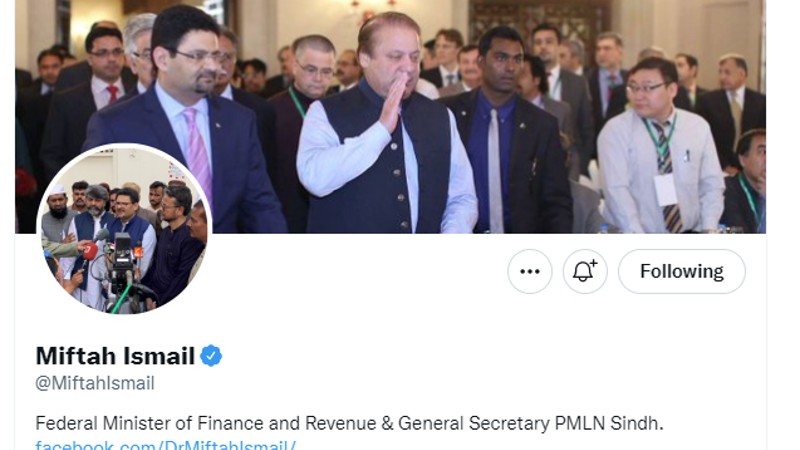A candid exchange over Twitter offers a rare peek into the Finance Minister’s approach to budget-making.
By Staff Reporter
ISLAMABAD: We suffer budgets annually and mostly survive them but seldom do we get a glimpse of the thought process going into the making of one in real time.
The candid demeanour of Finance Minister Miftah Ismail changed that Saturday briefly when he responded to a citizen’s objection with his trademark honesty, over Twitter no less.
The objection concerned the latest twist in the Finance Minister’s budget making strategy: Lowering the ceiling for tax exemption for the salaried class to PKR 600,000 annual income.
The citizen, one Musadaq Zulqarnain, tweeted to the effect that imposition of tax on salaried individuals earning up to 200,000 per month is not a good idea when retailers and traders are being let off the hook with a small fixed tax, and no steps are visible to make professionals like designers, lawyers, doctors etc., pay full tax.
The government had initially indicated it would keep the annual income ceiling for taxation on salaried class at PKR 1.2 million – and keep the tax for the first tier (PKR 1.2 million to PKR 2.4 million) at a nominal token value. But apparently, the latest round of parleys with the International Monetary Fund (IMF) promoted the authorities to renege on that promise.
Ismail, a billionaire businessman from Karachi, won plaudits for “taxing his own class” over social media platforms only the other day when the government announced the imposition of a super tax on the super-rich.
Now, however, he is under fire for taxing the captive salaried class already facing considerable economic hardship because of sky-high inflation – and that too when other, better heeled classes are being let off the hook.
This is how Miftah Ismail countered by saying, “Musadaq sahib I can fight only so many battles. We are bringing in (gently) millions of shops into the tax net, I have brought jewellers into the net, and rest assured I will bring in all the professionals you mentioned in the net over the next few months.”
He related in the next tweet how he talked to the associations of small shopkeepers and jewellers and secured their agreement to bring them into the tax net. Among the income classes he intends to approach next are real estate brokers, builders, housing society developers, car dealers, restaurants, salons, etc.
“But nothing forced”, he concluded. “With consultation.”
The thread promptly spawned a conversation, with several other tweeps joining in with their own opinions, insights, and jabs.
“Bring *Beauty Parlours* into tax net”, Handle @tooba940 went. “Many big names are making millions but they [don’t] show income. They take payments in cash and give no payment slips.”
Yousuf Nazar (@YousufNazar), the author of Balkanisation and Political Economy of Pakistan made a case for a review of rates and exemption limit, especially for those making less than PKR 300K a month, arguing the revenue shortfall could be met through other sources, “like higher electricity tariff for large houses”.
It turns out, Musadaq Zulqarnain, the originator of this conversation, heads up the Pakistani multinational Interloop Holdings as Chairman & CEO.
The homepage of Interloop Holdings says it is “an investment holding company having diversified businesses, its principle business activity being “to invest, acquire, sell and hold stocks, shares, securities and any other form of investment of its subsidiaries.”
Zulqarnain responded to Miftah Ismail by saying he understood the Finance Minister’s problems “while managing the ship in a perfect storm. We are happy to support Pakistan get out of this mess through Super Tax. … Good to know that you will develop consensus” before taking action.
Well, the consensus bit did cause some demoralisation in some news rooms, with staff wondering if the Finance Minister consulted any salaried people.
Copyright © 2021 Independent Pakistan | All rights reserved




